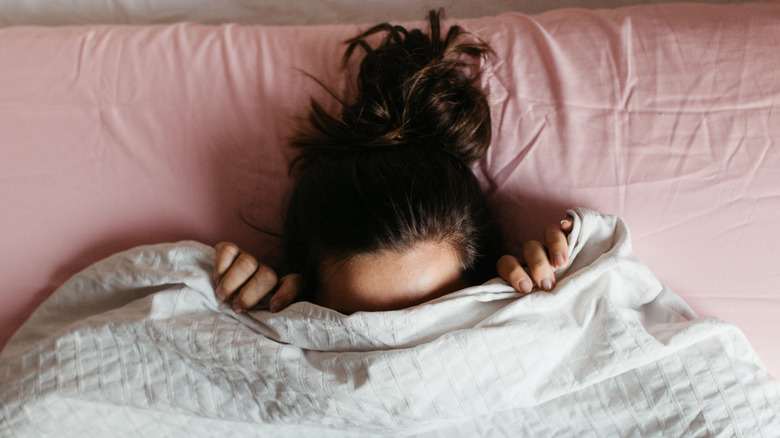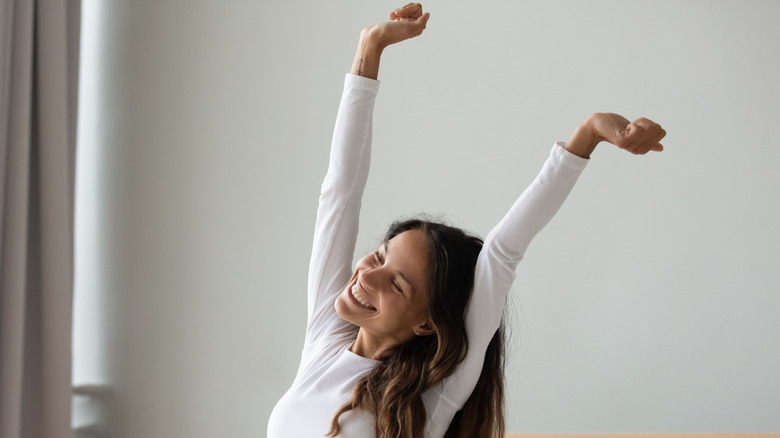Can Night Owls Train Themselves To Become Early Birds?
It is tough to be a night owl in a world that prioritizes early birds. The standard workday starts earlier than most night owls would like, which leaves many struggling to get enough sleep. Not only that, but the New York Times points out that fewer exercise classes are available at night. If you want to eat out, most of the options left in the middle of the night are unhealthy. With these hindrances to night owls' sleep habits, diet, and exercise routines, it is no surprise that night owls are more prone to developing diseases and even dying early compared to early birds (per Science Daily).
Some night owls have developed a schedule that works perfectly, allowing them to maintain a healthy diet and get enough sleep and exercise. For the night owls who struggle with this, the good news is that it may be possible to train yourself to become an early bird. A 2019 study published in Sleep Medicine found that shifting to an earlier bedtime improved night owls' mental health, as well as their cognitive and physical performance.
This is how to wake up earlier
Make no mistake: Training yourself to be an early bird will be hard, but it's possible with enough work and determination. Michelle Drerup, director of behavioral sleep medicine at the Cleveland Clinic, suggests gradually shifting your alarm clock earlier by 15-20 minutes every few days until you reach your ideal schedule. She notes that consistency is essential; don't slip up by sleeping in too late on your days off, as that may leave you right back where you started (per Live Science).
Shifting your sleep schedule will involve shifting the rest of your schedule as well. You won't want to exercise or eat too close to bedtime. Ideally, you should exercise in the morning or afternoon, and eat your final meal at least a few hours before going to bed. To fall asleep more easily, you should try to limit light exposure within an hour of bedtime, as light can impede your body's production of melatonin, the hormone that helps you sleep. On the other hand, sleep neurologist Cathy Goldstein tells Popular Science that exposing yourself to light early in the morning can shift your internal clock earlier, making it easier to wake up.


